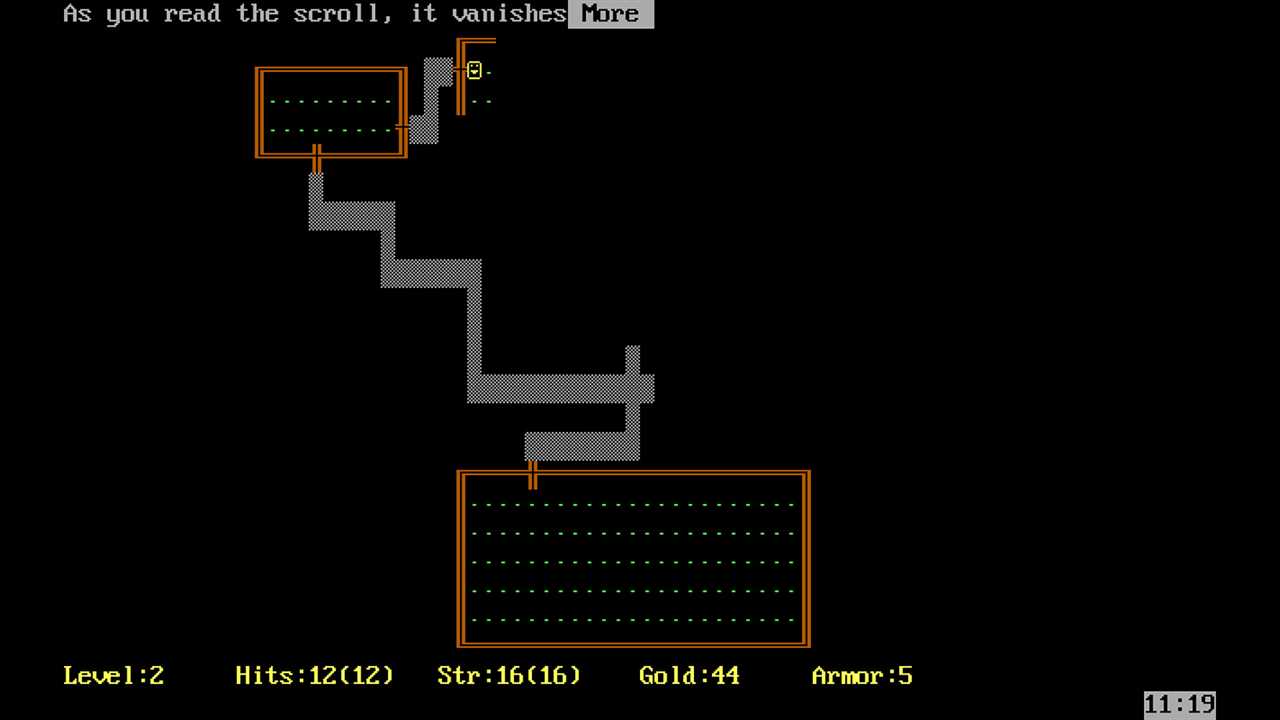VIDEO games are the biggest form of entertainment, bringing in more money than movies and music combined.
Big hitters like GTA 5 and Pokémon Go bring in billions in revenue every year, and the industry as a whole is growing with no signs of stopping.

The original Rogue game was released in 1980, and is very unlike roguelike games today
Despite that, the language used to talk about video games, both from the press and from the general public, is very flexible and often confusing.
Most genre names are fairly descriptive — action adventure games feature action and adventure, while turn-based strategy games have you executing strategy in turns.
Three game genres in particular are confusingly named however, and require a lot of prior knowledge to make sense of them.
The first is metroidvania, which is a portmanteau of Metroid and Castlevania, and is typically used for games that gate progression until the players find particular items or abilities.
The genre was inspired by two different games, Super Metroid for the SNES, and Castlevania: Symphony of the Night for the PS1 and Sega Saturn.
Super Metroid came first, and is one of the earliest examples of gated progression, with the player needing all sorts of suit upgrades to traverse the world.
Castlevania: Symphony of the Night took what Super Metroid started and expanded it, adding RPG elements like experience points and levels.
Since these two games released, multiple others have aped the progression and gameplay styles on display, and the genre is a mainstay of modern gaming.
The recently announced Prince of Persia: The Lost Crown is reportedly inspired by metroidvania games, a first for the long-running series.
Another confusingly named genre is roguelikes, a genre which has become massively popular in recent years.
Roguelikes are games in which the player is expected to die multiple times while running through typically randomly generated levels, keeping a bit of progress or upgrades with each death.
The genre’s name is inspired by a game from 1980, which used simplistic text-based graphics and a harsh perma-death mechanic.
Most roguelikes today are actually not much like the original Rogue at all, as Rogue didn’t allow players to keep any progress, items, or upgrades after death.
The most recent genre to fall foul of this naming scheme is soulslikes, which are inspired by games like Dark Souls, Demon’s Souls, and Elden Ring.
These games typically have combat similar to the games that inspired them, requiring thoughtful, methodical inputs in harsh and unforgiving fights.
What makes a soulslike is fairly loosely defined — some suggest that hard boss fights are the main factor, while others consider stamina and resource management to be the key to the genre.
All of these genres have one thing in common: their names require prior knowledge of the games they’re named after to understand them.
If somebody’s never played Metroid or Castlevania, then metroidvania as a term means very little, if anything at all.
Rogue is so far removed from the roguelikes of today that it doesn’t make much sense as a comparison, and soulslike is so loosely defined that just about any action RPG could fit.
Granted, they’re not the only instances of genre names that are less than useful, with genres like ‘immersive sim’ and ‘RPG’ having their own issues with descriptivity.
But there is precedent for changing the names of some of these game genres in the eyes of the general public too.
Following the release of Doom in 1993, games that used similar mechanics were referred to as Doom clones for quite some time.
As the genre rose to prominence, the ‘Doom clone’ moniker was dropped and replaced by the term ‘first person shooter’, a much more descriptive name that is still in use today.
It’s unlikely that metroidvania and roguelike will change anytime soon, since even companies like Nintendo are using the terms, but soulslike is young enough that there’s still time for an alternative to appear.
Written by Oliver Brandt on behalf of GLHF.






